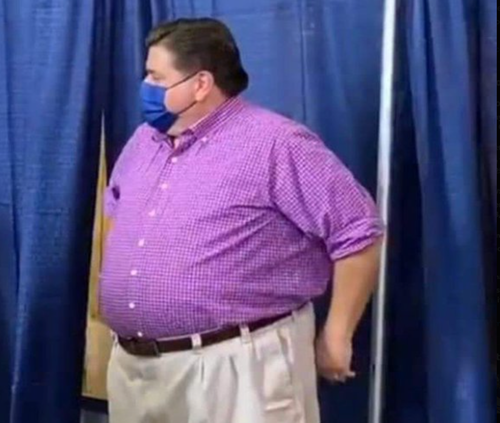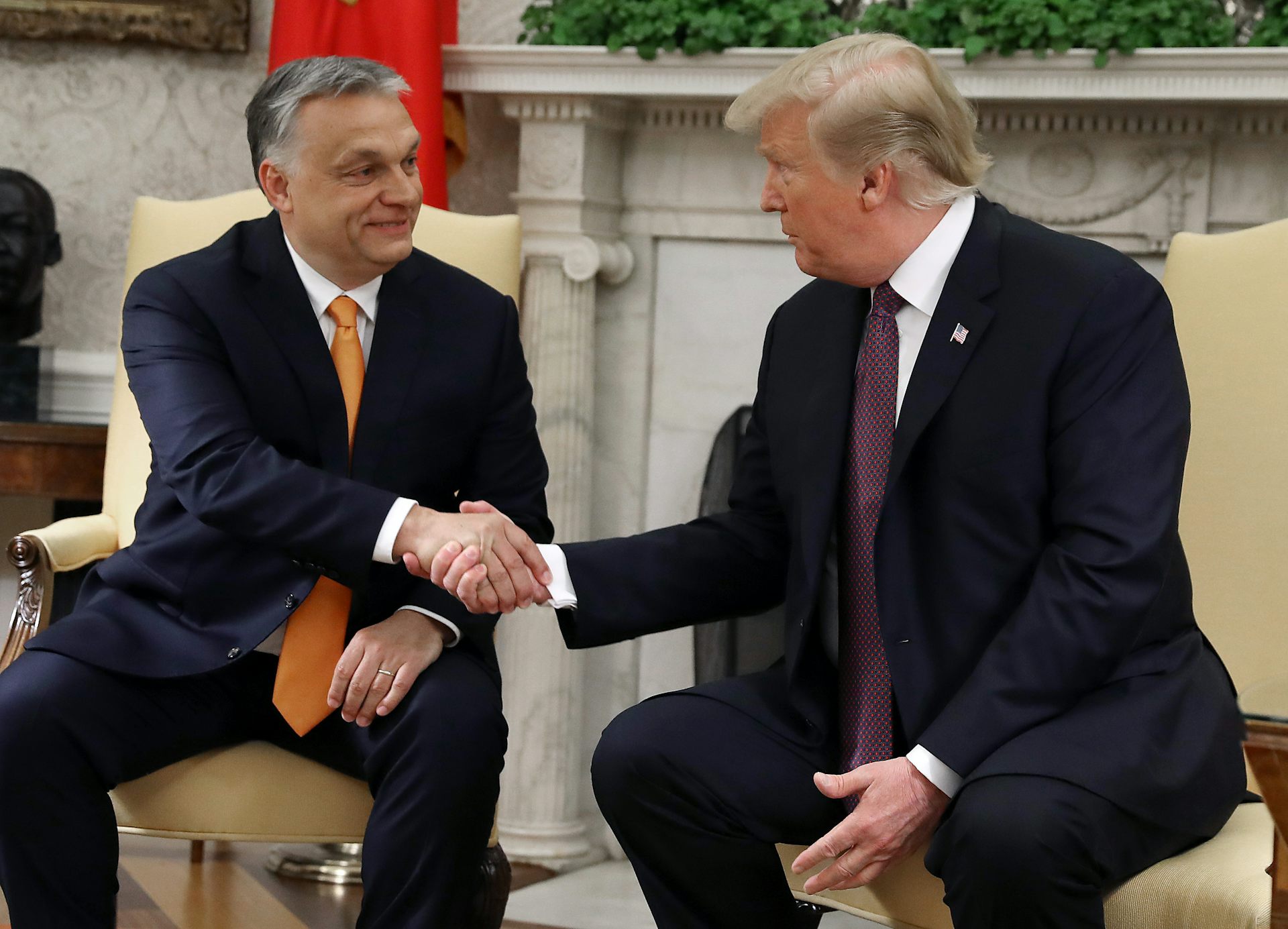Immigration Advocates Are Overwhelmed By Trump’s Flood-the-zone Strategy

Immigration advocates are fighting the Trump administration’s policies one by one in court. But after scoring some early wins, activists say they’re overwhelmed as the Trump administration’s flood-the-zone approach gains momentum — and reaches the Supreme Court.
Activists have launched what are likely to be long-drawn-out court battles against President Donald Trump in his second term. But many fear what the administration will do next to enact his immigration agenda, especially as these cases make their way to the nation’s highest court.
“This is just devastating, I mean it’s just horrible,” said Nicolette Glazer, an immigration lawyer and advocate who’s been following the legal challenges. “It’s just going to be a complete massacre.”
Since taking office, Trump has instituted a broad crackdown on immigration by ending Biden-era programs and sending a deportation message that advocates say has chilled and terrified communities across the country. The sweeping moves are part of Trump’s promise to enact the largest mass deportation in U.S. history, following his 2024 victory that telegraphed the country moving further to the right on immigration.
Advocates cheered Thursday, when the Supreme Court ruled the Trump administration must facilitate the return of Kilmar Abrego Garcia, a Maryland man who was deported to a notorious prison in El Salvador despite a judge’s order barring his removal because he faced the likely threat of persecution in his homeland.
It was one of a handful of recent legal victories. Among them: A federal district court in Washington extended its injunction on deportations through a wartime law, the Alien Enemies Act, through mid-April. The courts also blocked the administration from cutting off legal funds for unaccompanied migrant children.
And last week, a federal judge temporarily sided with the Venezuelans on temporary protected status who were about to lose those protections after Homeland Security Secretary Kristi Noem revoked the status in February. The court issued an injunction that will keep an 18-month extension of TPS in place while the judge hears the case.
But while advocates have bagged wins in district court battles, Trump is “winning the larger war so far,” Glazer said. “The Trump administration does not appear to be deterred.”
The administration declared its own victory this week. A divided Supreme Court vacated the injunction on use of the Alien Enemies Act, removing a trial judge’s order that had imposed a sweeping block on all deportations under Trump’s invocation of the 18th century law.
Some legal analysts likened the Alien Enemies Act decision to a split decision — Trump could once again cite the law for deportations, as long as immigrants are able to challenge their detention orders. But to the administration, it was a “massive legal victory” and a “smackdown” of the district court, White House press secretary Karoline Leavitt told reporters Tuesday.
“A GREAT DAY FOR JUSTICE IN AMERICA!” Trump wrote on Truth Social.
Venezuelans have already filed petitions in New York and Texas challenging their deportations under the Alien Enemies Act. A judge blocked deportations yet again by issuing a temporary restraining order for the defendants in Texas — setting up more challenges and appeals on the wartime law for both sides.
At the same time, the administration has also sent termination notices to immigrants on parole status who entered via the Biden-era parole program for Cuba, Haiti, Nicaragua and Venezuela and via the CBP One app — amounting to over a million people who will become vulnerable to deportation.
“It’s overwhelming,” said Venezuelan activist Adelys Ferro, who’s been advocating for TPS. “It’s exhausting, it’s disheartening, it’s painful and I’m not going to lie, last night I cried.”
The TPS case is awaiting a ruling at the Ninth Circuit Court of Appeals, though activists say an emergency appeal to the Supreme Court after that is likely.
“Everybody is afraid,” added Ferro, who is the director of the Venezuelan-American Caucus. “I’ve been in contact with thousands upon thousands of TPS beneficiaries, and I feel their pain, their uncertainty, their fear.”
DHS Assistant Secretary Tricia McLaughlin told POLITICO that the district court decision pausing the end of TPS protections “is yet another example of an activist judge trying to obstruct President Trump’s agenda.”
“Secretary Noem will continue fighting to return integrity to the TPS system, which has been abused and exploited by illegal aliens for decades. We will return TPS to its original status: temporary,” McLaughlin said in a statement.
The White House did not respond to multiple requests for comment on this story.
Venezuelan activist Cecilia Gonzalez Herrera, who’s a plaintiff in the TPS case, said she expected the full-throttle push to deport people on TPS like her. The status revocations and arrests of Venezuelans are the first step to deliver on the kinds of numbers Trump has promised, she said.
Immigration and Customs Enforcement has homed in on the Venezuelan gang Tren de Aragua as one of its primary targets in raids across the country, citing the gang in part as a reason to revoke TPS protections for all Venezuelans. Multiple polls show that Trump’s policies of strengthening border security and upping deportations continue to trend well with voters.
“Half of this country elected Donald Trump, and unfortunately, that is working out — the narrative that wants to criminalize many of us, despite us proving ourselves day to day that we are hard-working, honest people,” Gonzalez Herrera said. “It’s hard to be a Venezuelan living in the U.S.”
Legal experts and lawyers say the fear of being deported will push people to leave voluntarily — even if they’re here legally. Self-deportation has become a large push (and a multimillion-dollar ad campaign) by the administration — DHS called for those losing parole status to leave and use the new CBP Home app to report their intention to depart the U.S.
“It’s a matter of telling people that they can and letting people’s fears fill in the rest of the blanks themselves,” said Dara Lind, a senior fellow at the American Immigration Council. Lind stressed that immigrants on TPS have other avenues to stay in the U.S. and get relief once their status ends.
Activists like Ferro and Gonzalez Herrera said that they’ll push through the uncertainty until protections can remain in place beyond the TPS injunction.
“This is not one of those moments where we should just start running like chickens without a head and freaking out,” Gonzalez Herrera said. “We need to be very laser-focused.”
DHS has signaled that if the administration wins its appeal on TPS, that 18-month extension will go away quickly. Up to 600,000 Venezuelans could lose their ability to live and work in the U.S.
But with the appellate process, they could be fighting this out for months — if not years.
“The fight is worth it,” Ferro added. “But I don’t think the fear is going to go away.”


